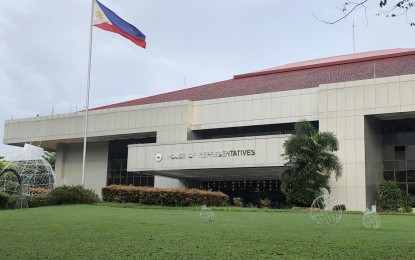
MANILA – A measure seeking to deepen the capital market by developing a robust institutional investor base and strengthening the regulatory environment has hurdled committee level at the House of Representatives.
The House Ways and Means Committee on Monday approved the tax provisions of the unnumbered substitute bill to House Bill No. 8938, or the Capital Market Development Act (CMDA), without amendments.
The bill proposes the establishment of an employee pension and retirement income (EPRI) account from the proposed private retirement and pension system that is fully funded and portable.
The EPRI account shall be a permanent account until retirement, owned, maintained, and managed by the employee, regardless of changes or transfer in employment.
As a private pension system, the EPRI owner shall make all investment decisions pertaining to his EPRI assets.
EPRI shall be compulsory to cover all employees and employers in the private sector, while self-employed and professionals may opt for its voluntary coverage.
Albay Rep. Joey Salceda, panel chair, said the House would work with Capital Market Development Council chair Carlos Dominguez III to ensure that the bill is passed “in a manner that maximizes benefits to workers without burdening businesses too heavily.”
“We are looking for the Goldilocks spot on contribution rates. I am heavily because businesses are still struggling with the Covid-19 (coronavirus disease 2019) pandemic. At the same time, current private pension plans are extremely inadequate for decent old age, and if we don’t do this reform soon, young workers won’t have any good retirement plan to look forward to,” he said.
Salceda said they will still have to determine the appropriate rates of contribution given industry and labor concerns.
Under the current version, employers will pay 4 percent of worker salary and the workers 1 percent of their salaries to the pension plan.
Micro, small, and medium enterprises (MSMEs) will only pay 2 percent of worker salary, while very small businesses with under three workers will be exempt.
The tax provisions on the measure include the following: employer’s contribution made to the EPRI shall be allowed as a deductible expense of the employer; all income of whatever nature earned by the EPRI, including interest and gains earned from the placements or investment of the EPRI assets, shall be exempt from all taxes; and all benefits and distribution received by the employee at the time of vesting or retirement shall be exempt from all taxes. (PNA)
